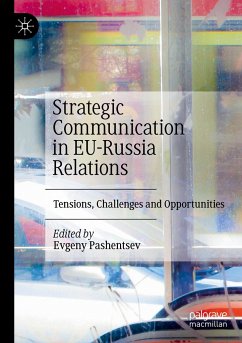
The Palgrave Handbook of Malicious Use of AI and Psychological Security
Versandkostenfrei!
Versandfertig in 6-10 Tagen
152,99 €
inkl. MwSt.

PAYBACK Punkte
76 °P sammeln!
This handbook focuses on new threats to psychological security that are posed by the malicious use of AI and how it can be used to counteract such threats. Studies on the malicious use of AI through deepfakes, agenda setting, sentiment analysis and affective computing and so forth, provide a visual representation of the various forms and methods of malicious influence on the human psyche, and through this on the political, economic, cultural processes, the activities of state and non-state institutions. Separate chapters examine the malicious use of AI in geopolitical confrontation, political ...
This handbook focuses on new threats to psychological security that are posed by the malicious use of AI and how it can be used to counteract such threats. Studies on the malicious use of AI through deepfakes, agenda setting, sentiment analysis and affective computing and so forth, provide a visual representation of the various forms and methods of malicious influence on the human psyche, and through this on the political, economic, cultural processes, the activities of state and non-state institutions. Separate chapters examine the malicious use of AI in geopolitical confrontation, political campaigns, strategic deception, damage to corporate reputation, and activities of extremist and terrorist organizations. This is a unique volume that brings together a multidisciplinary range of established scholars and upcoming new researchers from 11 countries. This handbook is an invaluable resource for students, researchers, and professionals interested in this new and developing field of social practice and knowledge.












